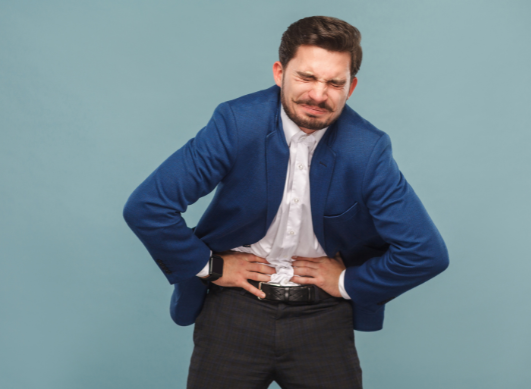- Home
- Share
- Forum
- Ulcerative colitis Forum
- Research and useful tips - Ulcerative Colitis
- 6 Remedies for Ulcerative Colitis Constipation
Patients Ulcerative colitis
6 Remedies for Ulcerative Colitis Constipation
- 42 views
- 0 support
- 1 comment
All comments
![]()
pancake
Good advisor
![]()
pancake
Last activity on 19/04/2023 at 13:30
Joined in 2017
13 comments posted | 10 in the Ulcerative colitis Forum
Rewards
-
Good Advisor
-
Contributor
-
Messenger
-
Explorer
You should be careful about how much fibre you eat though as sometimes it can make the inflammation worse. For instance, I can't eat any seeds, oats, brown rice or whole grained bread or fruit with the skin on. It can cause an awful flare-up. It's better to ask your doctor and test foods to see how you react. Some people do better with fibre than others.
Give your opinion
Survey
Survey
Members are also commenting on...
Living with ulcerative colitis
My treatment has been delayed because of the Coronavirus - What can I do?
![]()
![]()
![]()
Articles to discover...

09/10/2024 | Testimonial
UC & IBS: “I felt like I was the only one dealing with this painful and embarrassing condition.”
Medication fact sheets - patient opinions...
Subscribe
You wish to be notified of new comments
Your subscription has been taken into account







Margarita_k
Community managerGood advisor
Margarita_k
Community manager
Last activity on 07/10/2020 at 11:39
Joined in 2016
1,195 comments posted | 20 in the Ulcerative colitis Forum
1 of their responses was helpful to members
Rewards
Good Advisor
Contributor
Messenger
Committed
Explorer
Evaluator
Constipation is one possible complication of ulcerative colitis (UC). UC is an inflammatory bowel disease that causes inflammation along the lining of your large intestine and rectum. There’s a greater risk of UC constipation when inflammation occurs in your rectum.
Constipation refers to less than three stools a week, straining during bowel movements, or having hard, pellet-like stools. This is problematic if you have UC: An inability to pass stools can trigger gas and stomach pain, complicating the condition.
Corticosteroids and immunosuppressant drugs are often prescribed to treat UC. But even if you take these medications for your condition, you may need other remedies to help manage constipation.
1. Increase your fluid intake
Hydration contributes to healthy gastrointestinal function. According to a study from 2011, increasing your fluid intake may relieve constipation because dehydration hardens stools.
Aim to drink 8 ounces of fluid per day. Drink water or decaffeinated tea. Limit your intake of caffeinated beverages. Caffeine is a diuretic, which can cause dehydration.
2. Take a stool-bulking agent
Stool-bulking agents, also called bulk-forming laxatives, increase the volume of your stools. This can make them easier to pass. Take these laxatives as directed with 8 ounces of fluids, preferably water or juice.
Talk to your doctor before combining a stool-bulking agent with prescription medication.
You should stop taking this type of laxative if you experience side effects, such as:
- stomach pain
- vomiting
- nausea
3. Use osmotic laxatives
Doctors often recommend osmotic laxatives as the next line of defense if constipation doesn’t improve with stool-bulking agents. This type of laxative induces bowel activity by increasing the amount of water in your intestines, which softens stools. This is a slow-acting laxative, so expect a bowel movement within two to three days.
This laxative may be safer than other types of laxatives because there’s a lower risk of developing side effects, such as:
- abdominal gas
- cramping
- bloating
4. Eat more fiber
Increase your dietary fiber intake to relieve symptoms of mild to moderate constipation. However, be aware that too much fiber may worsen symptoms of colitis in some people.
It may help to keep a food journal to identify potential problem foods. For example, your body may tolerate certain types of fruit, but not others. Or you may experience worsening symptoms after eating broccoli or cabbage, but other types of vegetables aren’t a problem.
The recommended amount of fiber is 20 to 35 grams per day. Increase your fiber intake slowly and allow your body to adjust. Fiber-rich foods include:
- vegetables
- fruits
- whole grains
If raw fruits and vegetables irritate your colitis, steam or bake these foods and monitor your symptoms.
Talk to your doctor about a fiber supplement if constipation doesn’t improve.
Useful Article: 14 foods to avoid if you have UC
5. Engage in regular physical activity
Decreased physical activity may also play a role in UC constipation. A sedentary lifestyle slows digestion and intestinal contractions. This makes it harder for stools to pass through your intestinal tract.
According to the Mayo Clinic, exercise may normalize bowel function. And a 2015 study that looked at the relationship between constipation and lifestyle factors found that people who regularly exercise had a lower risk of constipation.
Increase your level of physical activity to see if constipation improves. Start with low- to moderate-intensity workouts, and then gradually increase intensity as your endurance improves.
Go for a walk or swim, ride your bike, or participate in enjoyable sports. The American Heart Association recommends 150 minutes of exercise per week, which is roughly equal to 30 minutes for five days or 40 minutes for four days.
Useful article: Yoga and UC
6. Ask your doctor about biofeedback
Ask your doctor about biofeedback if you aren’t able to resolve UC constipation on your own. This type of behavioral therapy may improve bowel function.
It retrains pelvic floor muscles through relaxation techniques, which in turn can stimulate bowel activity. In one study of 63 people with chronic constipation, all participants reported having significantly more weekly bowel movements with adaptive biofeedback therapy.
Use biofeedback in conjunction with other types of therapies and remedies for UC, such as:
- a prescription medication
- increased fluid intake
- physical activity
Follow your behavioral therapist’s recommendations for the best results.
-------------------------
And how do you cope with constipation?